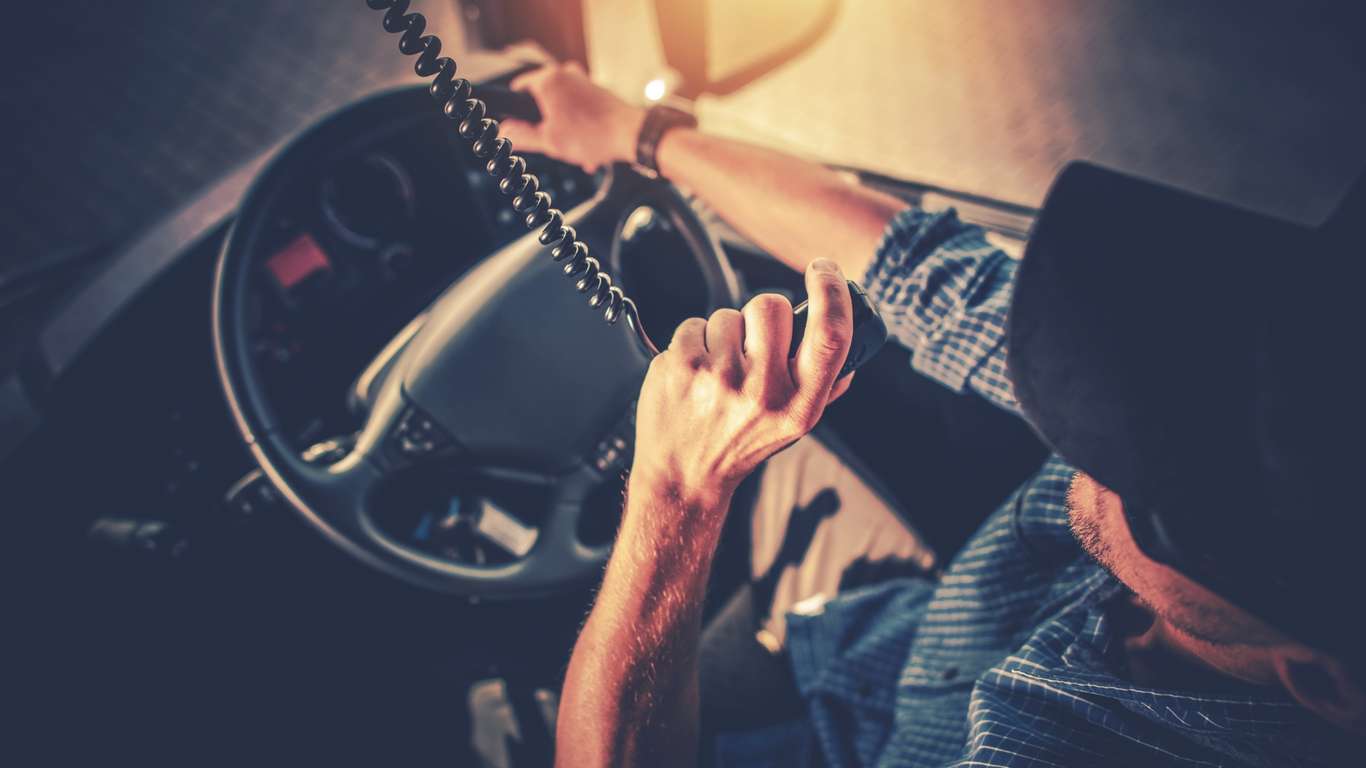
The nostalgia of CB Radio is difficult to avoid in the trucking industry. It evokes the feeling of the so-called “Golden Age of Trucking” – where the highways were ruled by trucking cowboys who had no regulations and ruled the open road.
Back then, nothing fueled the feeling of camaraderie more than being able to jump onto your CB Radio and check in with other drivers. If you’re a new driver or have been living under a rock during your career, you might not know about CB Radio, but that’s fine. CB Radios are no longer as ubiquitous as they once were.
CB Radio (Citizens’ Band Radio Service) is a short-distance radio which allows people to communicate with each other. It doesn’t require a license to operate (unlike other forms of radio) and has 40 channels which anyone can jump on and have a conversation.
As there are only 40 channels available, there is a lot of etiquette involved in CB Radio participation. Users are expected to introduce themselves with their handle, not hog the line with personal conversations and must always yield the conversation to emergency situations (And Channel 9 can ONLY be used for emergencies).
Though it’s fallen out of favor with the rise of cell phones, podcasts and other passive forms of entertainment on the road, a CB Radio is still recommended to many drivers on the road for emergency situations or to keep up with traffic reports. And, despite the drop in (radio) traffic, CB Radio is still used for on the road communication. So it could be worth crash coursing yourself in some of the local lingo.
CB Slang
Broadly speaking, CB Slang can be seen as falling into one of three categories:
Code Words, Fun Lingo, and Meta Language and each fills a different purpose. Each slang is fairly easy to work out (or rather, seems obvious when someone explains it to you) and is often an inside joke in some way or a very literal explanation of what is happening
Code words
As CB radio is used by everyone, it can’t be ruled out that law enforcement or individuals with delicate sensibilities could also be listening in. So to cover or to warn fellow drivers it might be handy to know some of the following phrases:
“Dream Weaver” - Tired Driver
(Think about a car weaving across the lines)
“Flying Donut” - Police Helicopter
(Anything related to donuts or bears will almost always be a reference to the police)
“Flying Candy Company” - Federal Communications Commission “FCC”
(Acronym code!)
“Pay the Water Bill” - Use the bathroom
(Because sometimes you just need a code to be polite over the radio - Usually used if a driver notifies that they are
driving with their kid or wife as a rider!)
Fun slang
These terms are pure fun and practically a dialect for trucking. There’s obviously far too many to list here but there’s plenty of sites which work as dedicated dictionaries for this slang if you want to brush up!
“Cheese Wagon” - School Bus
(Hint: Yellow with holes…)
“Wiggle Wagon” - Truck pulling triples of doubles
(My personal favorite)
“On your donkey” - Behind you
(Because you pull a donkey?)
“Crochet Rocket Cowboy” - Reckless Motorcyclist
(Also known as an Organ Donor, but the first one is far more fun)
Meta language
Finally there’s an entire lexicon dedicated to the ecosystem that is CB Radio. These phrases will help you navigate moving to channels or receiving instructions related to the use of the radio.
“Boast Toastie” - CB Expert
(Could be an insult, could be a compliment)
“Go to Sesame Street” - Go to Channel 19
(Channel 19 being the main channel for truck drivers… You can draw your own conclusions here but I’ve heard it’s because
“Everyone lives there”)
“Redneck Radio” - Excessive use of CB Slang
(Because not everyone cares that you’re a Boast Toastie)
There’s plenty of online dictionaries to help you learn CB Slang but sometimes it's best just to leap in and listen hard in your own truck. And who knows, maybe you’ll have a chance to have meet some interesting people on the road.